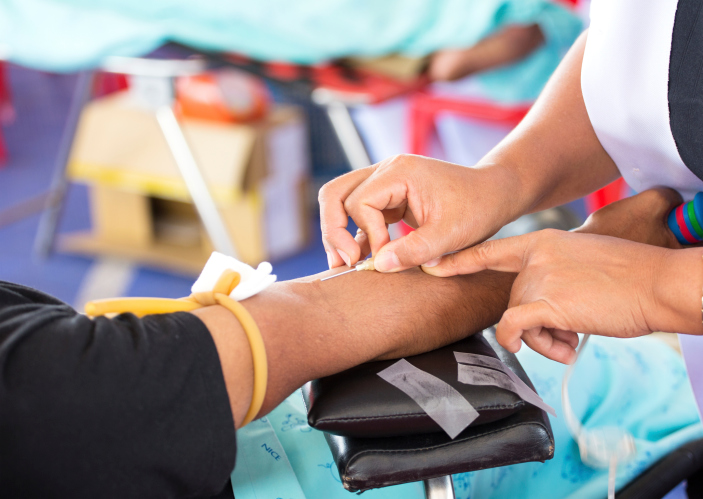Blood donations while training


Recently at my office, there was a call for blood donations and I wanted to do my part so I signed up to give blood. I mentioned it to a few running friends and was surprised to receive negative reactions. Intuitively, giving blood is a good thing. One donation can save the life of three people and Canada’s blood supply is critically low. With urgent appeals from Canadian Blood Services, it is more important than ever for Canadians to step up and donate blood.
However, as runners training for big events, we may need to be selfish on this one and put our health first as donating blood while training in your on-season will have negative effects on your training.
I was saddened to hear it, but I did some research this week and this is what I discovered:
Blood volume: Donating blood significantly impacts your blood volume and it impacts your performance for at least two weeks while blood levels rebound. Although it takes 24 hours to replenish the volume of blood you donated, the oxygen-carrying hemoglobin takes much longer to regenerate. Canadian Blood Services stipulations a minimal interval of 56 days between donations as a study has shown that it takes donors a range of 20-59 days before their hemoglobin levels are restored.
Performance: Donating blood lowers your oxygen carrying capacity which means that you have a decreased time to exhaustion. It will be harder to perform the same workouts that you were doing before the donation as less oxygen to your muscles means running slower as a result.
Iron levels: This is especially important for female runners due to menstruation but affects male runners as well. Frequent blood donors are more likely to be anemic. Considering that runners are more likely to be anemic due to heavy sweating, repetitive foot pounding which causes blood cells to rupture and gastrointestinal bleeding that can accompany competition and heavy training loads.
I am in no way suggesting that we shouldn’t be rolling up our sleeves to help out our fellow Canadians. If you are wanting to donate your blood as an athlete, there are a number of ways to do it and remain healthy:
• Donate in your off season. Most runners take time off at the end of fall to restore their body after a hard season of training. It most likely isn’t the greatest idea to donate directly after a crucial fall race, but to give your body some recovery time before depleting any of its stores.
• Increase your iron intake. Considering running and blood donations can skew runners towards anemia, it is wise to eat iron-rich foods such as leafy greens, red meat and seafood. Consider iron supplements if your levels are low. (It is recommended to take a blood test and consult with your doctor before taking iron supplements).
• Consider donating a smaller amount. If you are wanting to donate during training, consider donating a smaller amount of blood to increase recovery time.
• Make sure you are properly recovered before racing again.


